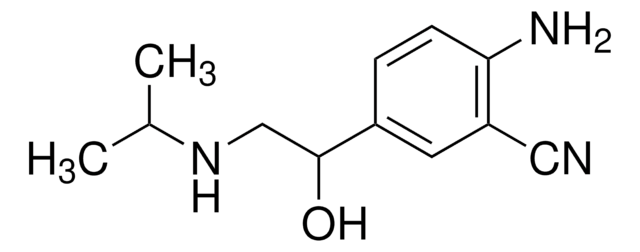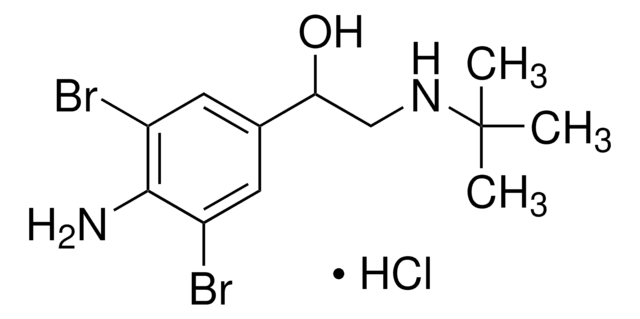34861
2-Butanone
suitable for HPLC, ≥99.7%
Synonyme(s) :
MEK, Méthyl éthyl cétone, Méthyléthylcétone
About This Item
Produits recommandés
Densité de vapeur
2.49 (vs air)
Niveau de qualité
Pression de vapeur
71 mmHg ( 20 °C)
Pureté
≥99.7%
Forme
liquid
Température d'inflammation spontanée
960 °F
Limite d'explosivité
10.1 %
Technique(s)
HPLC: suitable
Impuretés
≤0.001% free acid (as CH3COOH)
≤0.001% non-volatile matter
≤0.1% water (Karl Fischer)
Résidus d'évap.
≤0.001%
Transmittance
335 nm, ≥50%
340 nm, ≥80%
350 nm, ≥98%
Indice de réfraction
n20/D 1.379 (lit.)
Point d'ébullition
80 °C (lit.)
Pf
−87 °C (lit.)
Densité
0.805 g/mL at 25 °C (lit.)
λ
neat
Absorption UV
λ: 335 nm Amax: ≤0.30
λ: 340 nm Amax: ≤0.10
λ: 350 nm Amax: ≤0.01
Application(s)
food and beverages
Chaîne SMILES
CC(CC)=O
InChI
1S/C4H8O/c1-3-4(2)5/h3H2,1-2H3
Clé InChI
ZWEHNKRNPOVVGH-UHFFFAOYSA-N
Vous recherchez des produits similaires ? Visite Guide de comparaison des produits
Description générale
Application
Mention d'avertissement
Danger
Mentions de danger
Conseils de prudence
Classification des risques
Eye Irrit. 2 - Flam. Liq. 2 - STOT SE 3
Organes cibles
Central nervous system
Risques supp
Code de la classe de stockage
3 - Flammable liquids
Classe de danger pour l'eau (WGK)
WGK 1
Point d'éclair (°F)
30.2 °F - closed cup
Point d'éclair (°C)
-1 °C - closed cup
Certificats d'analyse (COA)
Recherchez un Certificats d'analyse (COA) en saisissant le numéro de lot du produit. Les numéros de lot figurent sur l'étiquette du produit après les mots "Lot" ou "Batch".
Déjà en possession de ce produit ?
Retrouvez la documentation relative aux produits que vous avez récemment achetés dans la Bibliothèque de documents.
Les clients ont également consulté
Notre équipe de scientifiques dispose d'une expérience dans tous les secteurs de la recherche, notamment en sciences de la vie, science des matériaux, synthèse chimique, chromatographie, analyse et dans de nombreux autres domaines..
Contacter notre Service technique





